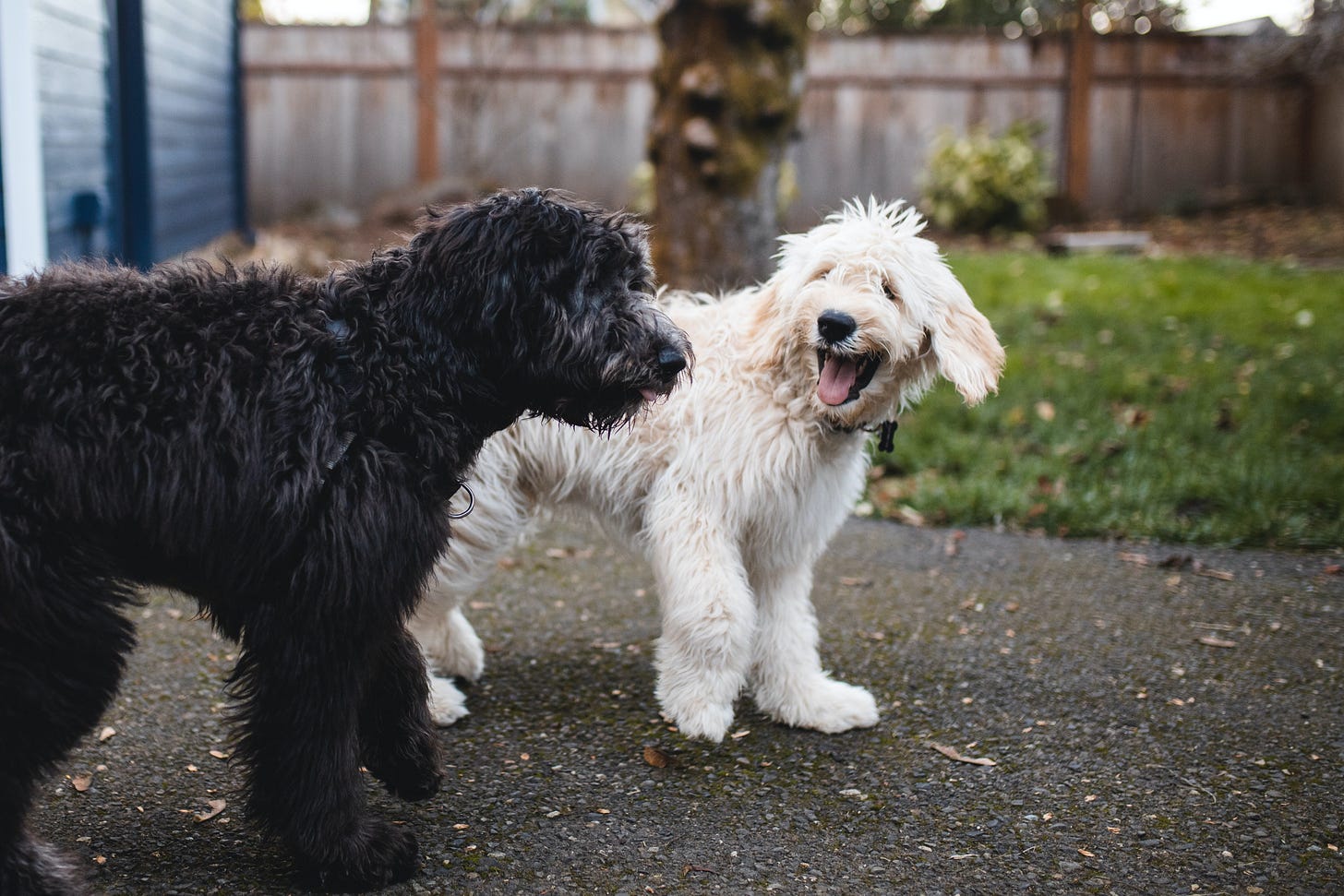Understanding Your Socially-Overwhelmed Dog
Hello, and welcome.
Last time we were together, I was talking about how some of our dogs have been feeling frustrated whilst social encounters have been restricted. From not being able to have cuddles with other humans to missing out on playtime with their doggy pals - this has caused many dogs to start to show this frustration through what we may deem as “naughty” behaviour.
Our dogs aren’t “naughty”. They aren’t consciously sitting there thinking about ways they can wind us humans up. They are instead responding emotionally to the situation in a similar way we might expect a toddler to - displaying their needs, their concerns, their frustrations through the physical. But instead of lying on the floor kicking their legs, you might have seen more jumping up, barking, and just general messing around.
But what if your dog is displaying these behaviours for another reason?
We might think we know what fear in our dogs looks like. It’s when they cower, tuck their tail, retreat, or growl… right? Well, sometimes fear is shown in a less obvious way.
Here enters “displacement” behaviours.
Have you ever got to a restaurant or bar before the friends you are meeting? Did you just sit there, calmly and confidently, awaiting them? Or did you quickly reach for your phone, start sipping your drink, or perhaps twirling your hair? These small behaviours give us purpose in a situation when we feel uncomfortable. They are a release for that nervous energy we are feeling.
Now consider our dogs. When they are put in situations where they might feel overwhelmed, anxious, or scared - do they perhaps start to display some of those “naughty” behaviours we mentioned? When put into social encounters they are uncomfortable with, yes our dogs can engage the classic fight/flight response… but they can also “flirt” or “fiddle about”.
When your dog doesn’t know how to avoid that well-meaning human who wants to make friends with them. When they’re not sure how to tell that over-exuberant off-lead dog know that they aren’t confident enough to play with them. When your dog doesn’t know what else to do - sometimes they just need to release that nervous energy. They need to twirl their hair - or in a dog’s case, start chewing their lead, jumping up at your back, start humping, or bark.
When we don’t understand that these behaviours aren’t due to them being “naughty”, we will continue to put our dogs in these environments - and we’ll continue to feel frustrated at their behaviour. When we stop, delve beneath the surface of the behaviours we’re seeing, then we can start to better support our dogs AND improve our connection with them.
Displacement behaviours don’t mean that your dog is anti-social. In fact, they’re usually displayed by dogs who really do want to bond and communicate with others - they just haven’t got the confidence, or are yet to learn the right skills to do so. They just need a little support.
Next time your dog seems to be acting up on a walk or at a social gathering, before you feel frustrated and tell them off - STOP. Ask yourself, are they actually feeling good in this situation? Or do they need some support? Would they like you to help by asking the humans to give them more space or the excitable dogs to be put on lead? Or could they do with another way to disperse some of that nervous energy?
By emotionally supporting our dogs, we’re also supporting them not needing to display those wrong (at least in our minds) behaviours.
So what do you think? Have you got a “naughty” dog - or one that just needs a little more help?
Until next time,
Caroline



